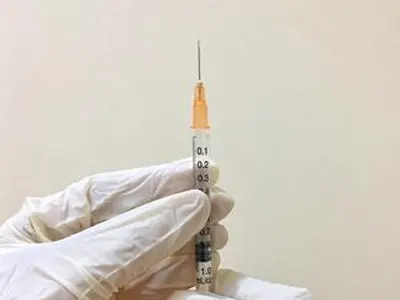Last Updated: July 2nd, 2022 by

Career Shortcuts
When you think about doctors, what comes to mind? You most likely imagine people specializing in diagnosing and treating patients with various illnesses.
An immunologist is a doctor who focuses on helping patients with conditions related to a dysfunctional immune system.
If you’re interested in learning how to become an immunologist, it’s essential to learn more about the job requirements and how to make the most of your education.
This blog post will discuss everything on how to become an immunologist!
Visit our Career Guide for a list of all our job insights for an in depth look at the new career path you are considering.
What Do Immunologists Do?
Immunologists do several tasks, including:
- Order and interpret laboratory tests.
- Counsel patients on how to improve their immunity.
- Prescribe medications.
- Collaborate with other healthcare professionals to develop treatment plans.
Meet an Immunologist and have a look into his daily life:

Career Guide
How to Become an Immunologist

Follow these steps to become an immunologist.
Read More: How to Become a Radiologist. Interested in other areas of the medical field? We explore how to become a Radiologist in this career guide.
Step 1: Get a Bachelor’s Degree
Most people enter college to get a bachelor’s degree, but what they may not realize is that there are many different types of degrees that can be earned at the bachelor’s level.
In addition to traditional programs like business and engineering, there are also more specialized fields like immunology.
Becoming an immunologist requires a deep understanding of the human body and its various systems.
Immunologists must identify the different types of cells that make up the immune system and know how they interact with each other.
They also need to have a strong foundation in molecular biology to understand how the body’s genes affect immunity.
While becoming an immunologist may require more time and effort than other bachelor’s degree programs, it can be a gratifying career for those passionate about helping others stay healthy.
Step 2: Get a Medical Degree
After you have completed your undergraduate studies, you will need to attend medical school. During medical school, you will take classes such as microbiology and pharmacology.
You will also complete clinical rotations in various medical specialties. Be sure to choose courses that interest you, including immunology.
Immunologists must be licensed physicians, so attending medical school is a necessary prerequisite.
Medical schools typically require applicants to have completed at least a bachelor’s degree, although some may prefer candidates with a master’s degree or higher.
You’ll need to complete at least four years of undergraduate work followed by four years of medical school.
You’ll take courses in biology, chemistry, physics, and other sciences during your undergraduate years, and then more specialized courses in immunology and other related fields in medical school.
You’ll also have the opportunity to participate in clinical rotations, which will give you hands-on experience working with patients.
After completing your medical degree, you’ll be ready to pursue a career as an immunologist.
Step 3: Complete the United States Medical Licensing Examination
The USMLE assesses a physician’s ability to apply medical knowledge, skills, and understanding of clinical science essential for the unsupervised practice of medicine.
The examination is divided into three stages: Step 1, Step 2 CK, and Step 3. Each stage has its own test content and format.
Step 1 assesses whether you can apply your knowledge of basic science concepts to patient care through multiple-choice questions and computer-based case simulations.
Step 2 CK assesses whether you can apply your clinical science knowledge through multiple-choice questions and computer-based case simulations.
Step 3 asks you to apply your knowledge in medicine and understanding of biomedicine to the unsanctioned practice of medicine by performing multiple-choice questions and computer-based case simulations.
Prometric administers the USMLE at testing centers throughout the United States. To register for the examination, you must create an account with Prometric and then apply to the NBME.
The NBME will then review your application and determine whether you are eligible to take the USMLE. Once approved, you can schedule a time and date to take the examination at a Prometric testing center.
Step 4: Participate in a Program Called Residency
A residency program is an opportunity to receive advanced training in a particular area of medicine. For example, becoming an immunologist requires completing a residency in immunology.
You will receive comprehensive training in diagnosing and treating immune-related diseases during a living.
You will also have the opportunity to conduct research and publish your findings in medical journals.
A residency can last anywhere from two to five years, depending on the specialty. However, the majority of residences last for three years.
If you are interested in becoming an immunologist, participating in a residency program is essential.
Not only will you receive the necessary training, but you will also gain invaluable experience that will benefit you throughout your career.
Step 5: Participate in an Immunology Fellowship
A fellowship in immunology is an excellent way to receive comprehensive training in this rapidly evolving field.
Immunologists are scientists who study the body’s immune system, which is responsible for protecting us from infection and disease.
Through their research, immunologists aim to improve our understanding of how the immune system works and develop new treatments for allergies, cancer, and autoimmune diseases.
Immunology fellowships typically last two to three years and involve research and clinical training.
Fellowships are usually offered at major academic medical centers, and they provide an opportunity to work with some of the world’s leading immunologists.
Connections typically involve a combination of didactic instruction and hands-on experience in the laboratory and clinic.
After completing a fellowship, many immunologists pursue careers in academic medicine, while others enter the private industry or government service.
Step 6: Obtain Certification to Practice Through the ABAI
One way to become an immunologist is to obtain certification through the American Board of Allergy and Immunology (ABAI). Certification through the ABAI entails passing both a written and an oral examination.
The written examination tests basic and clinical immunology knowledge and related areas such as allergic diseases, pediatrics, and internal medicine.
The oral examination assesses a candidate’s ability to synthesize and apply this knowledge to clinical problems.
Candidates for certification must have completed an accredited training program in allergy and immunology, which typically takes three years to complete.
More information on becoming certified through the ABAI can be found on their website.
FAQs

What are the Salary Expectations?
The median salary for an immunologist is $200,000.
However, salaries can range from $100,000 to $300,000 depending on experience, location, and other factors.
How Long Does it Take to Become an Immunologist?
It typically takes 7 to 8 years to become an immunologist.
This includes 4 years of undergraduate study, 4 years of medical school, and 3 to 5 years of residency training.
Some immunologists also choose to participate in a fellowship program, adding 2 to 3 years of training.
Finally, many immunologists may choose to obtain certification through the American Board of Allergy and Immunology (ABAI), which requires a written and oral examination.
Read More: How to Become a Sterilization Technician. Discover what it takes to succeed in this field and where to take your first steps.
Conclusion
Becoming an immunologist is a long and challenging process, but it can be a rewarding and fulfilling career.
If you are interested in becoming an immunologist, complete a residency program and consider obtaining certification through the ABAI.
With hard work and dedication, you can achieve your goal of becoming an immunologist.
